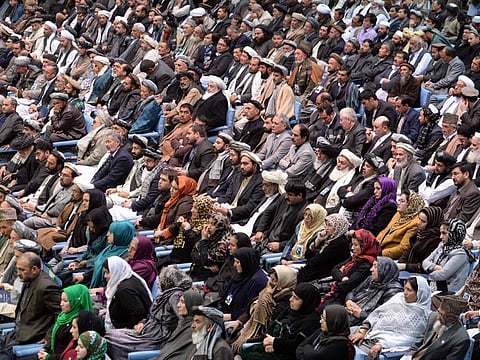Afghan peace talks mired in mistrust
US negotiations confirm that Trump expects a major role for Taliban in Kabul

Following the Taliban refusal to meet a 250-strong delegation representing various Afghan groups in Doha, the Afghan peace process is on hold most likely till after the month of Ramadan. The large group, whom the Taliban called a ‘wedding party’ included some Kabul regime members but only in their personal capacity. The mammoth delegation, according to the Taliban, confirms that the “Afghan government are not serious about the peaceful settlement of the issue.” Kabul’s president Ashraf Gani declaring that the group represents the “Afghan nation” angered the Taliban, who refuse to talk to the regime’s delegates.
For the Americans this postponement is particularly disappointing because the Russians succeeded in hosting a similar dialogue in February that actually isolated the Kabul regime further. Earlier the Taliban announced their spring military offensive against the “foreign occupation and their accomplices” on April 12. This year’s spring offensive, signalling the beginning of fighting season in Afghanistan is more symbolic as fighting has raged throughout winters. As many as 10,993 civilians were killed or wounded during 2018 according to the UN — the highest since the war began.
In a climbdown, after years of attempts to beat the Taliban, the US is now seeking a negotiated end to the Afghan war. Kabul-based military analyst Ateequllah Amarkhail believes that the violence is likely to increase even if the talks proceed. Making a major battlefield comeback in the recent years, the Taliban are able to attack Kabul’s military and civilian targets with relative ease. As the Taliban seek to secure military advantage, recent attacks on Kabul’s security forces has made the peace process even more pressing for the US.
Framework agreement
The current postponement stalls the momentum built at the February round of talks between the Taliban and the US. A framework agreement on the American troop withdrawal from Afghanistan and Taliban assurance that Afghan territory will not be used against another country has been in the pipeline. The two nonetheless remain in an atmosphere of mistrust. They disagree on the finer details of each issue, beginning with the troop withdrawal time lines.
The Taliban suspect that the Americans are using the talks to undermine their military successes. The Americans and their partners suspect that by slowing the negotiation process the Taliban only want to run down the clock when the US president is signalling a troop withdrawal quickly.
There is also no agreement on how to define a ‘terrorist’ which has stymied complete agreement on Taliban assurance that Afghan territory will not be used to launch attacks against the US. For the Taliban conceding to the American demand of declaring some of their ideological comrades as ‘terrorists’ is likely to divide their ranks, which they can ill afford.
The Kabul regime, dependent upon the US military presence, has publicly cautioned the Americans not to reach a deal with the Taliban behind their back until there is simultaneous progress in power sharing.
They believe that a troop withdrawal in the absence of a power sharing formula will result in the Americans losing their leverage over the Taliban and more importantly weaken their position. They are worried at the prospect that the Taliban would force their way into the interim government leading to a more permanent arrangement in Kabul. The Taliban are aware that a US troop withdrawal before the actual power transfer would guarantee their military victory.
Direct Taliban-US talks also confirm that the US expects a major role for the Taliban in the interim set-up in Kabul. Isolating the Kabul regime could make it a stumbling block to the peace process for a time. They now control more territory than at any time since 2011. Much of the work at the negotiations is therefore, aimed at evolving a climate of trust. US President Donald Trump is racing against time. He wants to demonstrate an end to the Afghan war before he enters his re-election campaign. Confident of their strength on the ground and mindful of his needs, the Taliban will extract every advantage if they are to oblige him. It is more likely that the US will blink first.
Sajjad Ashraf was an adjunct professor at the Lee Kuan Yew School of Public Policy, National University of Singapore from 2009 to 2017. He was a member of Pakistan Foreign Service from 1973 to 2008 and served as Pakistan’s consul general to Dubai during the mid 1990s.


